- Results from Phase IIb PADOVA and longer term follow-up data suggest clinical benefit on top of symptomatic treatment in early-stage Parkinson’s disease
- Prasinezumab is a potential first-in-class anti-alpha-synuclein antibody, targeting a known biological driver of Parkinson’s disease progression
- Parkinson’s disease affects over 10 million people globally and significant unmet need remains
Basel, 16 June 2025 – Roche (SIX: RO, ROG; OTCQX: RHHBY) announced today its decision to proceed with Phase III development of prasinezumab, an investigational anti-alpha-synuclein antibody, in early-stage Parkinson’s disease. This decision is informed by data from the Phase IIb PADOVA study and ongoing open-label extensions (OLEs) of PADOVA and Phase II PASADENA studies.
“We are encouraged by the efficacy signals observed across the two phase II trials and their open-label extensions, combined with the favourable safety and tolerability profile of prasinezumab,” said Levi Garraway, M.D., Ph.D., Chief Medical Officer and Head of Global Product Development at Roche. “We also recognise the substantial need for new treatment options, and the totality of data suggest that prasinezumab may have the potential to become the first disease-modifying treatment for people with Parkinson’s disease.”
Multiple endpoints from the PADOVA and OLE studies suggest a potential clinical benefit of prasinezumab when added to effective symptomatic treatment in early-stage Parkinson’s disease. Prasinezumab showed potential clinical efficacy in the primary endpoint of time to confirmed motor progression, although missed statistical significance. Positive trends towards reduced motor progression at 104 weeks (two years) were observed; these effects appear to be sustained over longer treatment periods based on additional OLE data. The PADOVA study also provided the first biomarker evidence of prasinezumab impacting the underlying disease biology.
The PASADENA and PADOVA OLE studies, which are evaluating the long-term safety and efficacy of prasinezumab in over 750 people with early-stage Parkinson’s disease, are ongoing.
About prasinezumab
Prasinezumab is an investigational monoclonal antibody designed to bind aggregated alpha-synuclein and thereby reduce neuronal toxicity. By reducing the build-up of alpha-synuclein protein in the brain, prasinezumab can potentially prevent further accumulation and spreading between cells, which may slow progression of the disease.
Data from the Phase IIb PADOVA study suggest the possible clinical benefit of prasinezumab on top of effective symptomatic treatment in early-stage Parkinson’s disease. PADOVA investigated prasinezumab in 586 people with early-stage Parkinson’s disease, treated for a minimum of 18 months while on stable symptomatic treatment. Prasinezumab showed potential clinical efficacy in the primary endpoint of time to confirmed motor progression with a HR=0.84 [0.69-1.01], although the study missed statistical significance (p=0.0657). In a pre-specified analysis, the effect of prasinezumab was more pronounced in the population treated with levodopa (75% of participants), HR=0.79 [0.63-0.99], p=0.0431 (nominal). Consistent positive trends across multiple secondary and exploratory endpoints were also observed. Trends towards reduced motor progression at 104 weeks (two years) were observed, showing 30-40% relative reduction versus placebo across the overall and levodopa-treated populations.
Prasinezumab continues to be well tolerated and no new safety signals were observed in the study. The safety database for prasinezumab consists of data from more than 900 Parkinson’s disease study participants that have been treated with the investigational medicine, of which more than 750 remain in open label treatment with over 500 treated for 1.5-5 years.
Roche entered into a Licensing, Development, and Commercialisation agreement with Prothena in December 2013 to develop and commercialise monoclonal antibodies targeting aggregated alpha-synuclein, such as prasinezumab, for the treatment of Parkinson’s disease.
About Roche in Parkinson’s disease
Parkinson’s disease is a chronic, progressive and debilitating neurodegenerative disease characterised by the gradual loss of neurons that make dopamine and other nerve cells. Today, Parkinson’s disease affects over 10 million people worldwide. The prevalence of Parkinson’s disease is increasing, and it has become one of the fastest-growing neurological disorders. Currently, symptomatic treatments that effectively alleviate motor symptoms are available. However, there are no therapies that slow down or stop the clinical progression of Parkinson’s disease.
Roche is evaluating multiple approaches to stop or slow disease progression and potentially prevent Parkinson’s disease by targeting underlying disease processes such as the accumulation of aggregated alpha-synuclein production, lysosomal dysfunction and neuroinflammation.
About Roche in Neurology
Neurology is a major focus of research and development at Roche. Our goal is to pursue groundbreaking science to develop new diagnostic solutions and treatments that help improve the lives of people with chronic and potentially devastating diseases. Roche is committed to using its diagnostic and pharmaceutical capabilities in an effort to better detect and treat neurological diseases as early as possible, and working toward preventing them altogether.
Roche is investigating more than a dozen medicines for neurological disorders, including Alzheimer’s disease, multiple sclerosis, spinal muscular atrophy, Duchenne muscular dystrophy, Parkinson’s disease, neuromyelitis optica spectrum disorder and Huntington’s disease. Roche diagnostics offers one of the broadest portfolio of solutions, including approved and investigational tools, such as digital and blood-based tests and CSF assays, aiming to more effectively detect, diagnose and monitor the disease. Together with our partners, we are committed to pushing the boundaries of scientific understanding to solve some of the most difficult challenges in neurology today.
About Roche
Founded in 1896 in Basel, Switzerland, as one of the first industrial manufacturers of branded medicines, Roche has grown into the world’s largest biotechnology company and the global leader in in-vitro diagnostics. The company pursues scientific excellence to discover and develop medicines and diagnostics for improving and saving the lives of people around the world. We are a pioneer in personalised healthcare and want to further transform how healthcare is delivered to have an even greater impact. To provide the best care for each person we partner with many stakeholders and combine our strengths in Diagnostics and Pharma with data insights from the clinical practice.
For over 125 years, sustainability has been an integral part of Roche’s business. As a science-driven company, our greatest contribution to society is developing innovative medicines and diagnostics that help people live healthier lives. Roche is committed to the Science Based Targets initiative and the Sustainable Markets Initiative to achieve net zero by 2045.
Genentech, in the United States, is a wholly owned member of the Roche Group. Roche is the majority shareholder in Chugai Pharmaceutical, Japan.
For more information, please visit www.roche.com.
All trademarks used or mentioned in this release are protected by law.
Roche Global Media Relations
Phone: +41 61 688 8888 / e-mail: [email protected]
| Hans Trees, PhD Phone: +41 79 407 72 58 |
Sileia Urech Phone: +41 79 935 81 48
|
| Nathalie Altermatt Phone: +41 79 771 05 25 |
Lorena Corfas Phone: +41 79 568 24 95
|
| Simon Goldsborough Phone: +44 797 32 72 915 |
Karsten Kleine Phone: +41 79 461 86 83
|
| Nina Mählitz Phone: +41 79 327 54 74 |
Kirti Pandey Phone: +49 172 6367262
|
| Yvette Petillon Phone: +41 79 961 92 50 |
Dr Rebekka Schnell Phone: +41 79 205 27 03 |
Roche Investor Relations
| Dr Bruno Eschli Phone: +41 61 68-75284 e-mail: [email protected] |
Dr Sabine Borngräber Phone: +41 61 68-88027 e-mail: [email protected]
|
| Dr Birgit Masjost Phone: +41 61 68-84814 e-mail: [email protected] |
Investor Relations North America
| Loren Kalm Phone: +1 650 225 3217 e-mail: [email protected] |
Attachment
- Media Investor Release prasinezumab Phase IIb PADOVA study English






